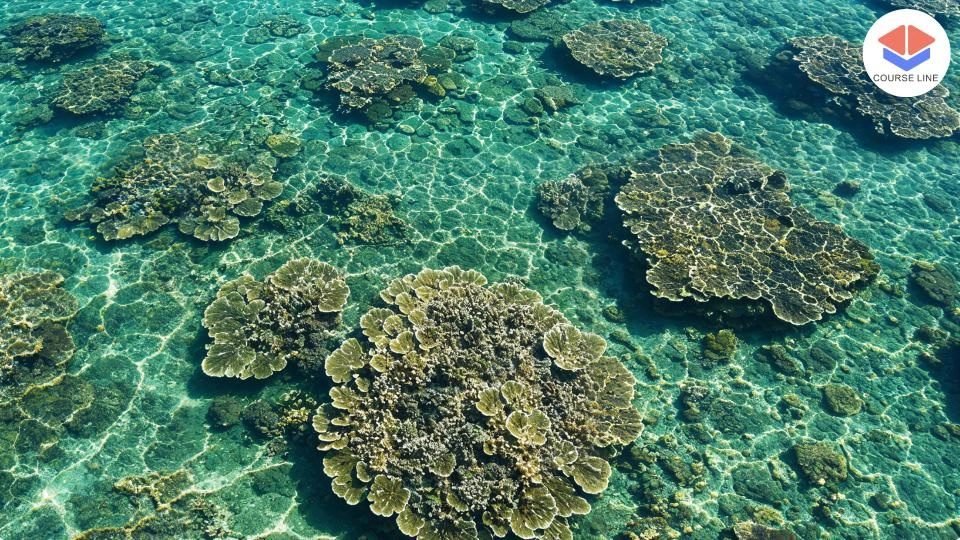Course Features
Price
Study Method
Online | Self-paced
Course Format
Reading Material - PDF, article
Duration
7 hours, 45 minutes
Qualification
No formal qualification
Certificate
At completion
Additional info
Coming soon
- Share
Overview
The Oceanography Level 8 Advanced Diploma is a comprehensive program that delves into the various aspects of ocean science, offering a well-rounded understanding of the ocean’s complexities. The course begins with an introduction to the field of oceanography, discussing its significance, history, and evolution as a scientific discipline. Students will explore different branches of oceanography, including biological, physical, chemical, and geological oceanography, providing a broad view of the subject. A focus on the tools and techniques used in oceanographic research, such as sampling methods, remote sensing, and oceanographic vessels, prepares students for hands-on experiences in the field.
The program covers key scientific concepts such as the physical properties of seawater, ocean currents, waves, tides, and ocean stratification. It goes on to explore the chemistry of ocean water, including nutrient cycles, ocean acidification, and the environmental impacts of pollution. Students will also study marine biodiversity, ecosystems, and the human impacts on ocean life, with particular attention to conservation efforts and the management of marine protected areas.
As the course progresses, learners will gain a thorough understanding of ocean circulation patterns and their role in global climate systems, such as the impact of El Niño and La Niña phenomena. The course delves into geological oceanography, examining plate tectonics, submarine volcanism, and seafloor mapping. Students will also gain exposure to advanced oceanographic methods and technologies, including marine surveys, remote sensing, and the use of oceanographic instruments like sonar and ROVs.
The course concludes with a focus on the future of oceanography, addressing emerging trends, innovations, and global challenges such as sustainability and climate change. A major component of the course is the Oceanography Research Project, where students conduct literature reviews, design research, and analyze real-life oceanographic case studies, enhancing their academic and practical skills.
Who is this course for?
The Oceanography Level 8 Advanced Diploma is a comprehensive program that delves into the various aspects of ocean science, offering a well-rounded understanding of the ocean’s complexities. The course begins with an introduction to the field of oceanography, discussing its significance, history, and evolution as a scientific discipline. Students will explore different branches of oceanography, including biological, physical, chemical, and geological oceanography, providing a broad view of the subject. A focus on the tools and techniques used in oceanographic research, such as sampling methods, remote sensing, and oceanographic vessels, prepares students for hands-on experiences in the field.
The program covers key scientific concepts such as the physical properties of seawater, ocean currents, waves, tides, and ocean stratification. It goes on to explore the chemistry of ocean water, including nutrient cycles, ocean acidification, and the environmental impacts of pollution. Students will also study marine biodiversity, ecosystems, and the human impacts on ocean life, with particular attention to conservation efforts and the management of marine protected areas.
As the course progresses, learners will gain a thorough understanding of ocean circulation patterns and their role in global climate systems, such as the impact of El Niño and La Niña phenomena. The course delves into geological oceanography, examining plate tectonics, submarine volcanism, and seafloor mapping. Students will also gain exposure to advanced oceanographic methods and technologies, including marine surveys, remote sensing, and the use of oceanographic instruments like sonar and ROVs.
The course concludes with a focus on the future of oceanography, addressing emerging trends, innovations, and global challenges such as sustainability and climate change. A major component of the course is the Oceanography Research Project, where students conduct literature reviews, design research, and analyze real-life oceanographic case studies, enhancing their academic and practical skills.
Requirements
The Oceanography Level 8 Advanced Diploma is a comprehensive program that delves into the various aspects of ocean science, offering a well-rounded understanding of the ocean’s complexities. The course begins with an introduction to the field of oceanography, discussing its significance, history, and evolution as a scientific discipline. Students will explore different branches of oceanography, including biological, physical, chemical, and geological oceanography, providing a broad view of the subject. A focus on the tools and techniques used in oceanographic research, such as sampling methods, remote sensing, and oceanographic vessels, prepares students for hands-on experiences in the field.
The program covers key scientific concepts such as the physical properties of seawater, ocean currents, waves, tides, and ocean stratification. It goes on to explore the chemistry of ocean water, including nutrient cycles, ocean acidification, and the environmental impacts of pollution. Students will also study marine biodiversity, ecosystems, and the human impacts on ocean life, with particular attention to conservation efforts and the management of marine protected areas.
As the course progresses, learners will gain a thorough understanding of ocean circulation patterns and their role in global climate systems, such as the impact of El Niño and La Niña phenomena. The course delves into geological oceanography, examining plate tectonics, submarine volcanism, and seafloor mapping. Students will also gain exposure to advanced oceanographic methods and technologies, including marine surveys, remote sensing, and the use of oceanographic instruments like sonar and ROVs.
The course concludes with a focus on the future of oceanography, addressing emerging trends, innovations, and global challenges such as sustainability and climate change. A major component of the course is the Oceanography Research Project, where students conduct literature reviews, design research, and analyze real-life oceanographic case studies, enhancing their academic and practical skills.
Career path
The Oceanography Level 8 Advanced Diploma is a comprehensive program that delves into the various aspects of ocean science, offering a well-rounded understanding of the ocean’s complexities. The course begins with an introduction to the field of oceanography, discussing its significance, history, and evolution as a scientific discipline. Students will explore different branches of oceanography, including biological, physical, chemical, and geological oceanography, providing a broad view of the subject. A focus on the tools and techniques used in oceanographic research, such as sampling methods, remote sensing, and oceanographic vessels, prepares students for hands-on experiences in the field.
The program covers key scientific concepts such as the physical properties of seawater, ocean currents, waves, tides, and ocean stratification. It goes on to explore the chemistry of ocean water, including nutrient cycles, ocean acidification, and the environmental impacts of pollution. Students will also study marine biodiversity, ecosystems, and the human impacts on ocean life, with particular attention to conservation efforts and the management of marine protected areas.
As the course progresses, learners will gain a thorough understanding of ocean circulation patterns and their role in global climate systems, such as the impact of El Niño and La Niña phenomena. The course delves into geological oceanography, examining plate tectonics, submarine volcanism, and seafloor mapping. Students will also gain exposure to advanced oceanographic methods and technologies, including marine surveys, remote sensing, and the use of oceanographic instruments like sonar and ROVs.
The course concludes with a focus on the future of oceanography, addressing emerging trends, innovations, and global challenges such as sustainability and climate change. A major component of the course is the Oceanography Research Project, where students conduct literature reviews, design research, and analyze real-life oceanographic case studies, enhancing their academic and practical skills.
-
- Overview of Oceanography and its Importance 00:10:00
- Types of Oceanography: Biological, Physical, Chemical 00:10:00
- Tools and Techniques in Oceanography 00:10:00
-
- Physical Properties of Seawater (Temperature, Salinity, Density) 00:10:00
- The Dynamics of Ocean Currents 00:10:00
- Ocean Waves and Tides 00:10:00
- Heat and Energy Transfer in the Ocean 00:10:00
- Ocean Stratification and Thermohaline Circulation 00:10:00
- Chemical Composition of Seawater 00:10:00
- Nutrient Cycles in the Ocean (Carbon, Nitrogen, Phosphorus) 00:10:00
- Ocean Acidification and its Impacts 00:10:00
- Pollutants in the Ocean and Environmental Consequences 00:10:00
- Ocean Circulation Patterns and Climate Interaction 00:10:00
- El Niño and La Niña Phenomena 00:10:00
- Ocean’s Role in Global Climate Change 00:10:00
- The Interconnection Between Ocean and Atmosphere 00:10:00
- Marine Surveys and Sampling Techniques 00:10:00
- Remote Sensing and Satellites in Oceanography 00:10:00
- Oceanographic Instruments (CTD, Sonar, ROVs, AUVs) 00:10:00
- Data Collection, Analysis, and Oceanographic Modeling 00:10:00
- Deep Ocean Exploration: Challenges and Discoveries 00:10:00
- Oceanographic Impacts on Marine Resources 00:10:00
- Marine Geophysics and Geodynamics 00:10:00
- Oceanographic Research Methods: Case Studies 00:10:00
- Exam of Oceanography Level 8 Advanced Diploma 00:50:00

No Reviews found for this course.
Is this certificate recognized?
Yes, our premium certificate and transcript are widely recognized and accepted by embassies worldwide, particularly by the UK embassy. This adds credibility to your qualification and enhances its value for professional and academic purposes.
I am a beginner. Is this course suitable for me?
Yes, this course is designed for learners of all levels, including beginners. The content is structured to provide step-by-step guidance, ensuring that even those with no prior experience can follow along and gain valuable knowledge.
I am a professional. Is this course suitable for me?
Yes, professionals will also benefit from this course. It covers advanced concepts, practical applications, and industry insights that can help enhance existing skills and knowledge. Whether you are looking to refine your expertise or expand your qualifications, this course provides valuable learning.
Does this course have an expiry date?
No, you have lifetime access to the course. Once enrolled, you can revisit the materials at any time as long as the course remains available. Additionally, we regularly update our content to ensure it stays relevant and up to date.
How do I claim my free certificate?
I trust you’re in good health. Your free certificate can be located in the Achievement section. The option to purchase a CPD certificate is available but entirely optional, and you may choose to skip it. Please be aware that it’s crucial to click the “Complete” button to ensure the certificate is generated, as this process is entirely automated.
Does this course have assessments and assignments?
Yes, the course includes both assessments and assignments. Your final marks will be determined by a combination of 20% from assignments and 80% from assessments. These evaluations are designed to test your understanding and ensure you have grasped the key concepts effectively.
Is this course accredited?
We are a recognized course provider with CPD, UKRLP, and AOHT membership. The logos of these accreditation bodies will be featured on your premium certificate and transcript, ensuring credibility and professional recognition.
Will I receive a certificate upon completion?
Yes, you will receive a free digital certificate automatically once you complete the course. If you would like a premium CPD-accredited certificate, either in digital or physical format, you can upgrade for a small fee.
Course Features
Price
Study Method
Online | Self-paced
Course Format
Reading Material - PDF, article
Duration
7 hours, 45 minutes
Qualification
No formal qualification
Certificate
At completion
Additional info
Coming soon
- Share
Indian Head Massage Level 8 Advanced Diploma
Course Line238$1,006.75Original price was: $1,006.75.$30.80Current price is: $30.80.Advanced Excel Skills for Job Success and Real-World Applications
Course Line237$1,006.75Original price was: $1,006.75.$30.80Current price is: $30.80.Food Science and Technology Level 3 Advanced Diploma
Course Line237$1,006.75Original price was: $1,006.75.$30.80Current price is: $30.80.





